Head Straight: EWS Rider Lucy Schick on Battling Concussion
Words: Pete Harrington
When 7mesh ambassador Lucy Schick won the U21 Enduro World Series overall title in 2019, she had no idea that only two years later, her reign at the top would be cut short by a concussion in the middle of 2021’s EWS season. But just like her fun-loving, flowing style on the bike, Lucy gamely fought her way back to health and competition, returning for the tail-end of the year to snag a top 20 Elite Women’s placing at Scotland’s Tweed Valley round.
A few week’s ago we had the opportunity to chat with Lucy about her journey back to the bike, her struggles, and tips on how other riders going through concussion recovery can work through and ultimately return to form.
Hey Lucy, nice to meet you.
Thanks, Pete! You too.
Where are you today?
I’m in Squamish today. I’ll be here for a little longer, then I’ll be heading off to school in Victoria for the next couple of years.
I guess you’re in Squamish for the riding, right?
Sure am! When COVID hit, school went online, so I went home for a bit until the semester started up again last fall, then decided to do online school and live in Squamish because my coach lives here. As you know, it’s just the best place for biking!
And the Sunshine Coast is where you grew up?
Yep. Specifically in Gibsons, on the Sunshine Coast. To get there from Squamish, you take the ferry from Horseshoe Bay to a little place called Gibsons. It’s not on Vancouver Island; it’s a peninsula that connects to Squamish across the ocean. But unfortunately, there are no roads to drive there, so you have to take a ferry, making it complicated.
What was it like growing up in a place that was not so well connected to the wider world?
Sometimes people think disconnected means small, but Gibsons isn’t as small as you might think. Forty thousand people live there, so it’s not teeny. It’s just that there’s no road, so you can’t drive to the mainland. But there are a bunch of mountains! I liked it.
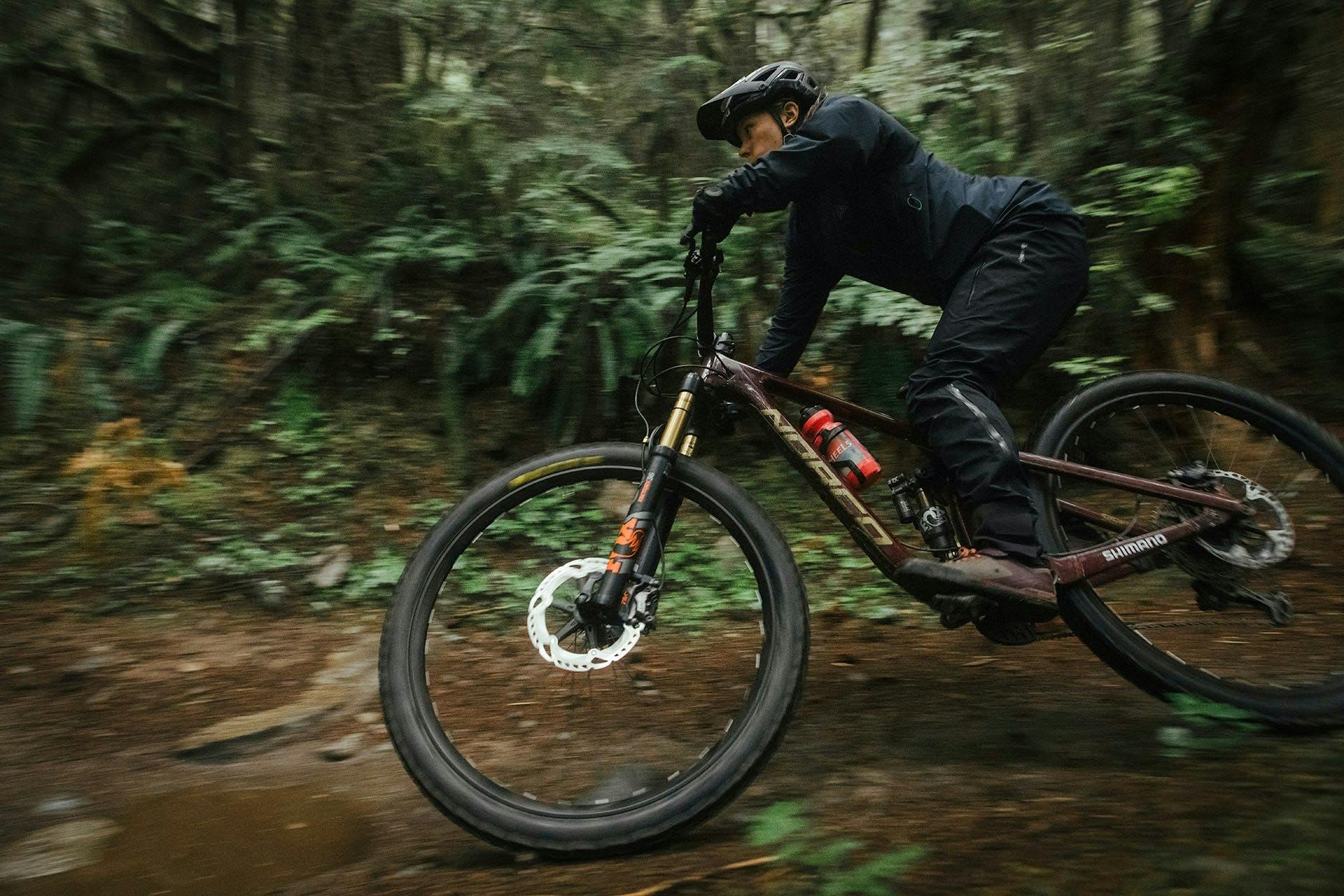
How did you get into mountain biking?
I loved sports as a kid, and I was always very competitive, so when I was in high school, I started commuting to Vancouver three to four days a week, just to do my sports. After a while, that took a toll. So, when I found mountain biking and realised I could just train at home, it was a revelation. As you can imagine, I was pretty done with taking the ferries by then!
You got into racing pretty early and quickly notched up some great results. But this past year, things took a bit of a turn. Can you talk a little about the run-up to your concussion?
All in, it was a bit of a weird year. About a month or two before the first block of EWS racing in Europe, which I think was around July, I still really wasn’t sure about the situation with COVID. So I went back and forth on what to do and eventually decided to stay in Canada for summer, race Singletrack 6 and then EWS in September. Unfortunately, Singletrack 6 didn’t end up happening, so I went to some downhill races in July instead, and during the second event, I crashed and got my concussion.
Was that the first time you’d got a concussion?
I have had another concussion, actually, but it was back in 2017 when I was just starting to bike. This most recent one was my first big one from biking, and funnily enough, my recovery was pretty good for the first month or three weeks. At least I thought it was. The problem was, I had this idea in my head of when I should be able to bike again, which didn’t help when my recovery went past that deadline!
It sounds like you put some pressure on yourself.
Totally. I was supposed to leave for Europe to go racing and couldn’t. That sucked. And because I was putting pressure on myself, I started to get stress headaches. I’ve always had those and know how to manage them, but they complicate matters because while you can push through a stress headache, you definitely should not try to push through concussion symptoms. And at some point, I just couldn’t tell what was what.
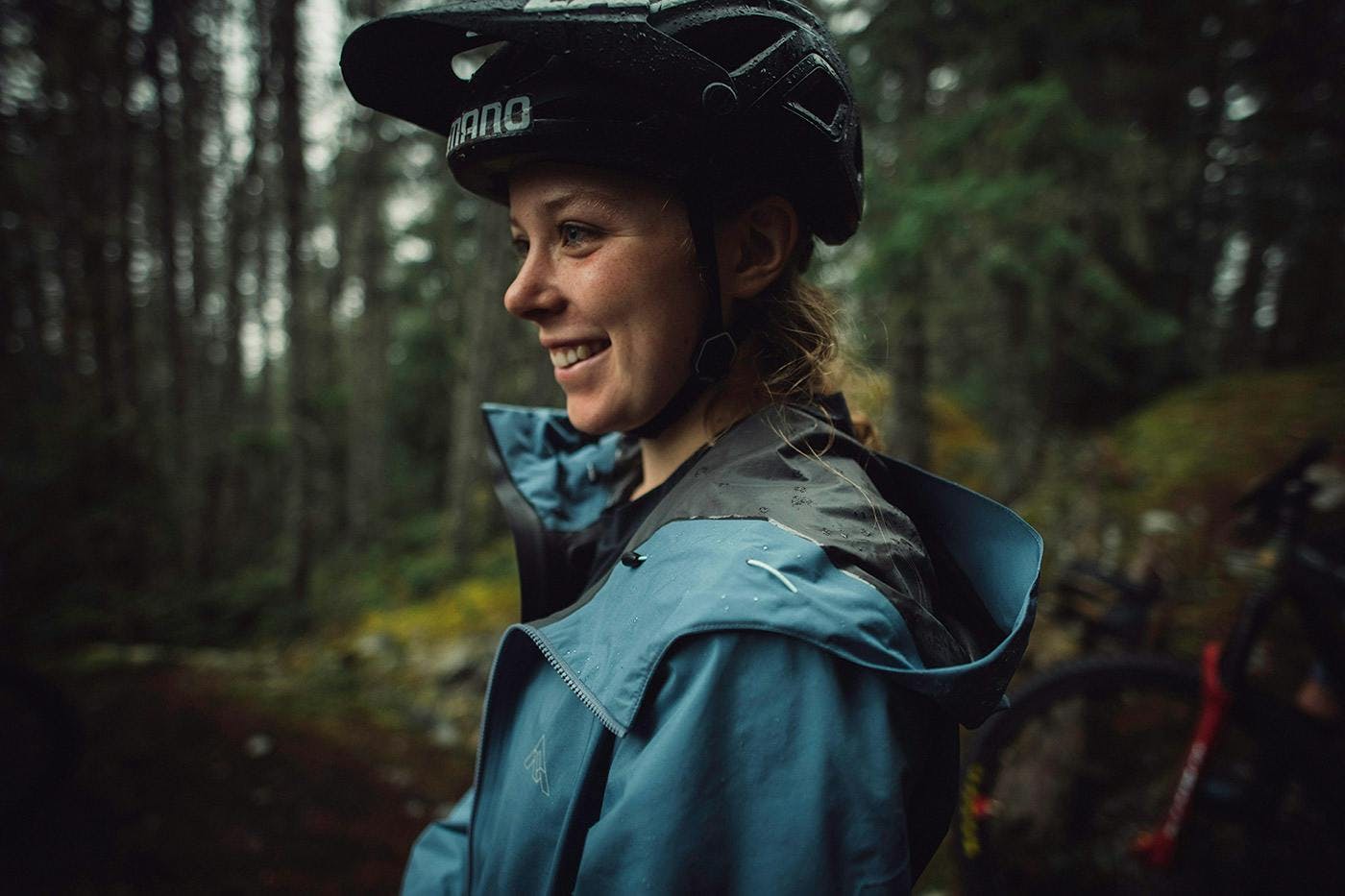
How are you supposed to recover from a concussion?
Number one, it’s different for everyone. However, it’s pretty interesting because when I had a concussion in 2017, the recovery protocol was almost the opposite of what it is now. For my first concussion, I was told to stay in a dark room until my head didn’t hurt, then start the process of getting back to health. Versus the advice now, which is to take things super chill for three to four days after the concussion and then start doing things – no dark room required! In both cases, being active doesn’t mean biking or whatever you do as a sport. More so walking and getting your whole sensory system used to seeing things and functioning again.
How did that stage go for you?
I was feeling better and better, and I could go on walks, even light jogs, and I rode the trainer a bit. One important thing to remember is that it’s okay to have symptoms and do things as long as your symptoms don’t worsen.
Still, you have to assess yourself the whole time. That can’t be easy.
True. And the most challenging thing is that it’s all about how you feel. You are the judge of how your brain feels and how your headache is. You can’t just take an X-ray, “Oh, your bone’s still healing.” It’s all up to you. And so, that just became a big mental battle to be like, “Okay. My head hurt, but is it a big headache? Is it a little headache?” And then, since I was out for almost two months with that, I forgot what normal felt like.
Long story short, my recovery went up and down, and then I got turned on to a specialist here in Squamish who has studied the neurology of concussions.
Sounds like the person for the job!
Totally! And it turned out that he had a very different approach to the other people I saw. As a result, he gave me straightforward answers and pinpointed what was still lagging in my brain and not working properly.
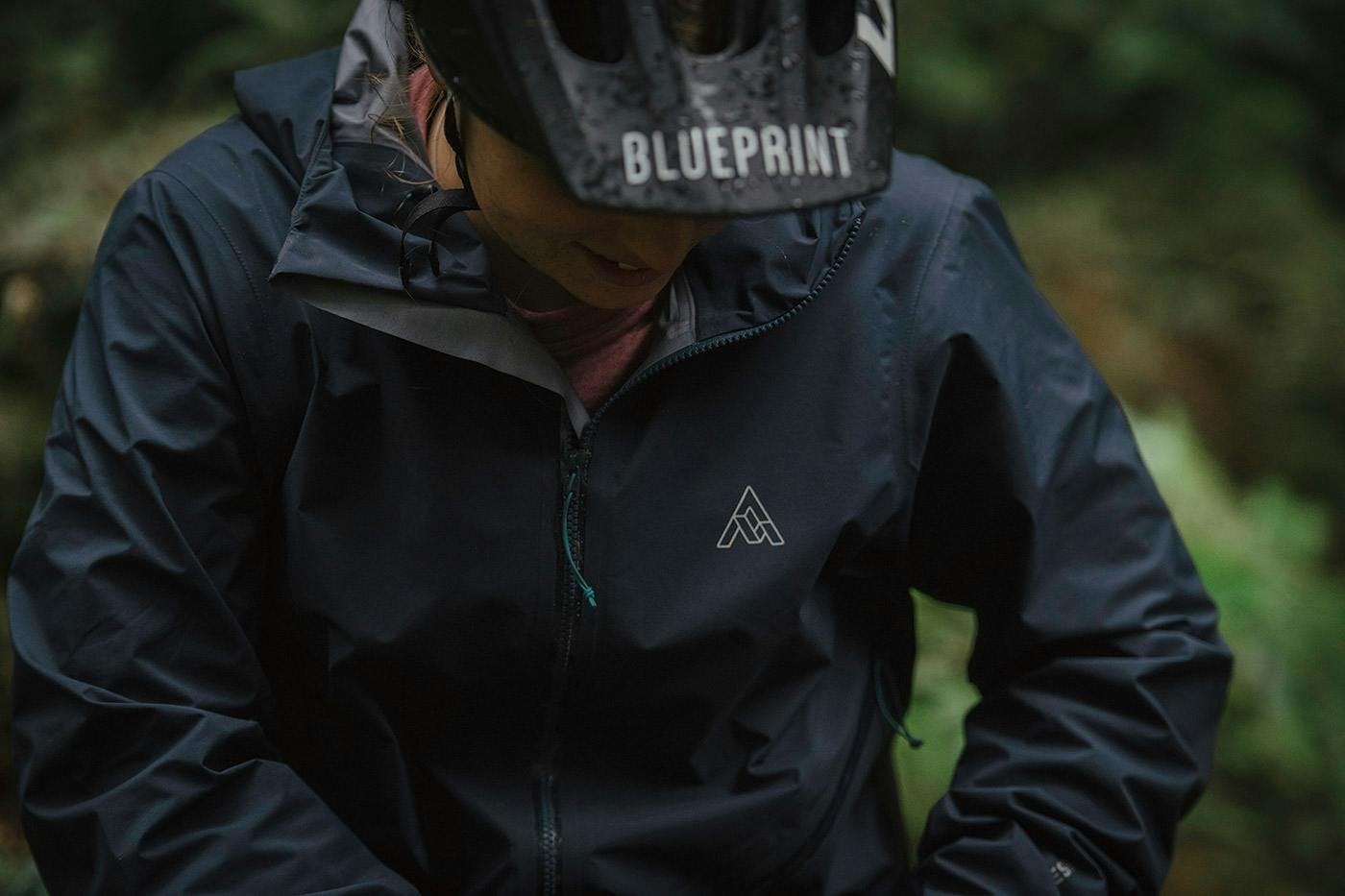
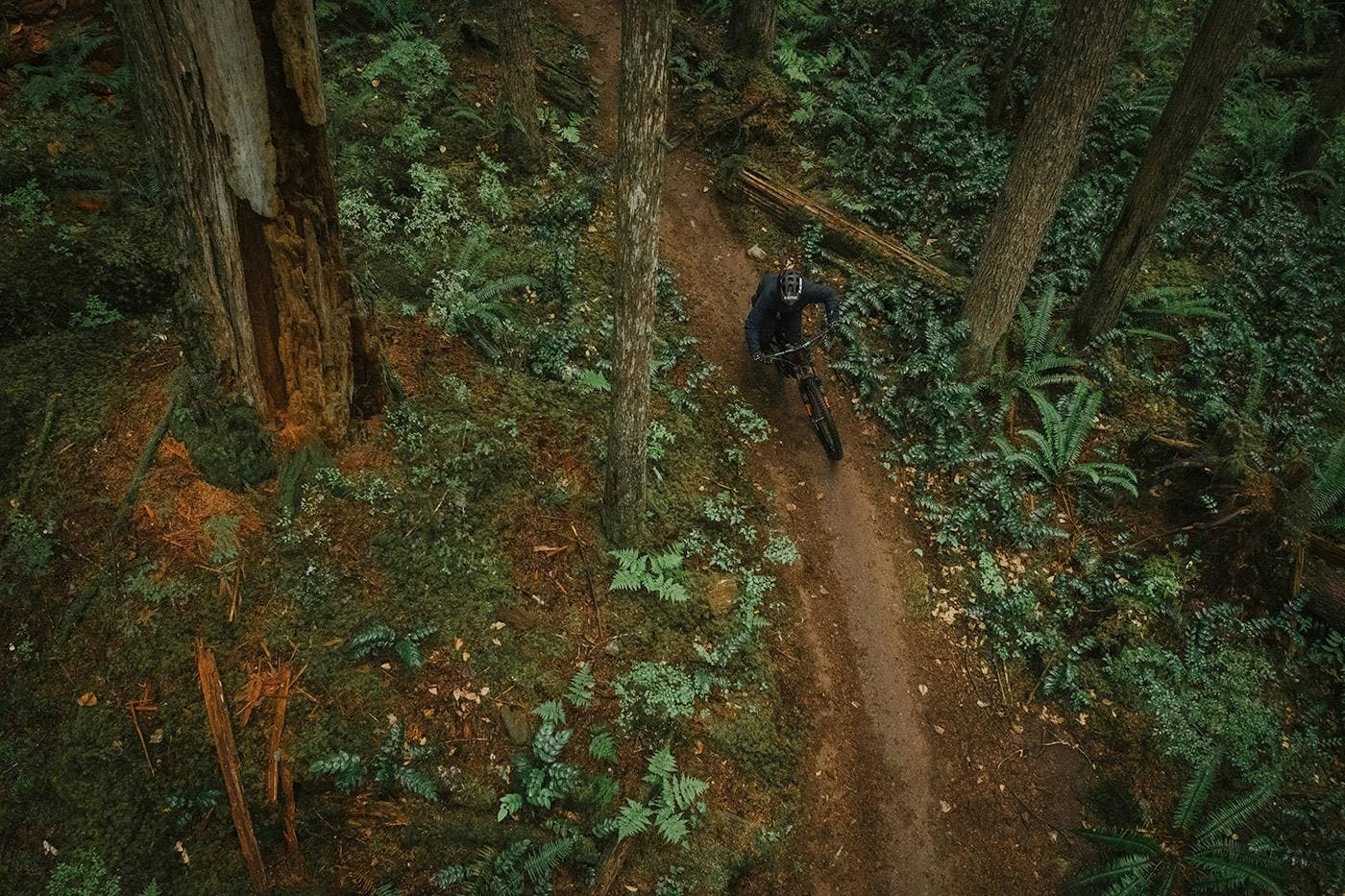
And how did he go about that? And what was the new advice?
A lot of it was just a lot of vestibular tests and eye tests – things like tracking. He found that my left eye was not tracking the same way as my right eye. That’s not good for the bike, as you can imagine! But even things like driving, looking side to side, or putting images together, my brain had to correct itself every time. And if you think of how many times you do those movements in a day, it’s a lot. Before going to him, I didn’t know any of that stuff.
I worked with him for a week, and we agreed that even though I wasn’t ready to race yet, I should still go on my trip to Europe, see all my friends, and have a blast. He took a holistic view of my injury and reminded me how important it is to be around my community. And he was right. I missed my friends and the whole scene and immediately felt better knowing I could at least show up, even without racing.
Was there anyone else who helped you through in particular?
Yep, the amazing Tara Lazarski. I don’t know if you know of her, but she works for the Rocky Mountain Enduro team. She’s also a physio and helped me a lot. She knows what it means to compete and the risks of racing. Her advice was essentially that it’s been two months, you’re a lot better, you just need to push through this last little bit. So I did!
It’s pretty awesome that you had such supportive people around you.
For sure. And she was right. Just being at the races with the people and the energy felt restorative. I felt so good I decided to race and didn’t totally disgrace myself! But, most importantly, I felt good, albeit totally unfit. To top off all the good vibes, Anita and Caro from the Norco Factory Team invited me to their place in the Swiss mountains, and we spent a fantastic week together, which gave me a chance to get some fitness back. It must have worked because a short time later, at the Tweed Valley EWS in Scotland, I placed 20th in the Elite Women’s division. I couldn’t have asked for a better day.
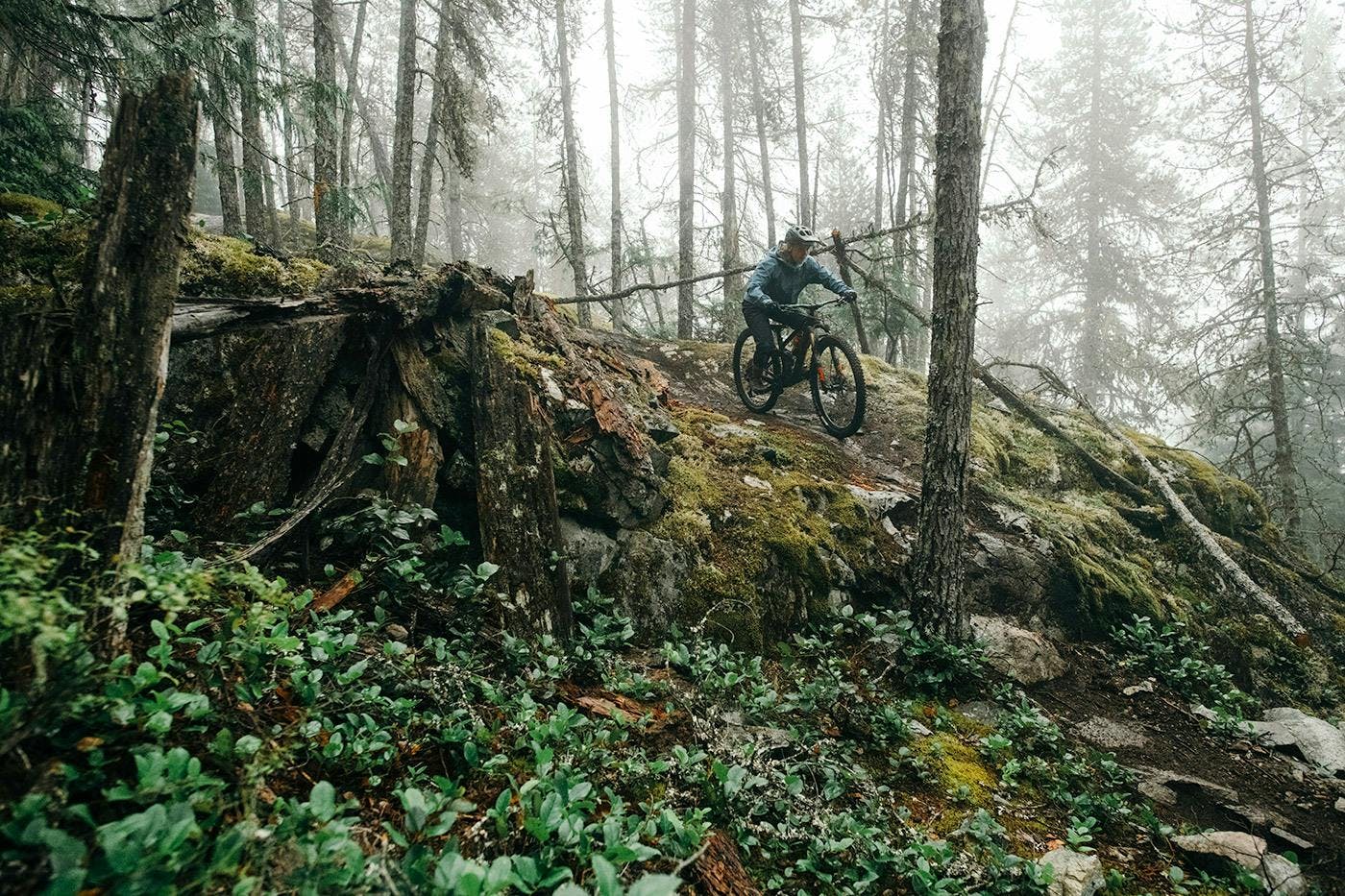
Congrats Lucy! As you look back on your two concussions and the experiences that followed, do you have any advice for other riders who might be in a similar position?
My main advice is to go and see someone. I know many people say, “Oh, I had a concussion, I hit my head, I’m just going to wait it out,” kind of thing. But see a doctor or, even better, a concussion specialist. They’re going to give you information. And I know they’re expensive sometimes, but I would say it’s worth it to have that guidance because it’s inherently confusing. You have to decide if you’re doing too much or doing too little, so having someone else to help you through that is essential.
The one thing I would say is, be patient. I’m so bad at being patient! It’s my worst thing ever. Maybe that’s why it was so hard for me. But be patient and get some help.
For anyone that doesn’t know, what are the initial symptoms of a concussion?
There’s a lot. But they include not remembering things, feeling dizzy, feeling nauseous. So if you have any of those after a head knock, the safe thing to do is just take a day off. You do not want to risk hitting your head again. That is the very worst thing you could do at that point.
It’s been a pleasure talking to you, Lucy. Thank you for sharing your story with us. Ride safely, and be well!
Thanks, Pete, you too!
